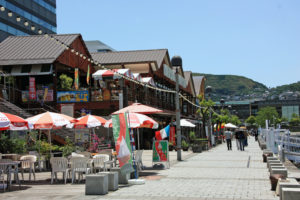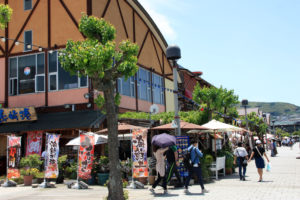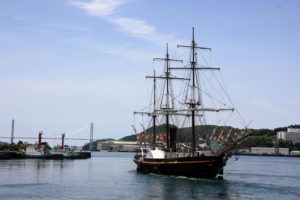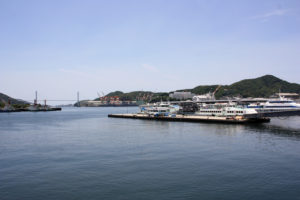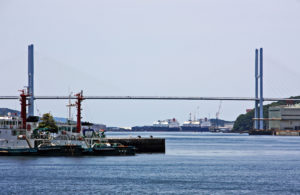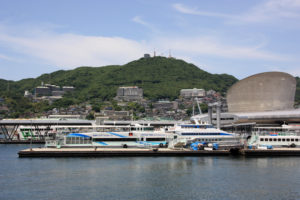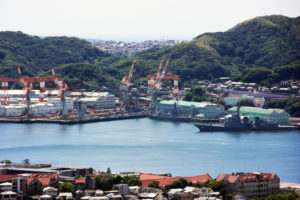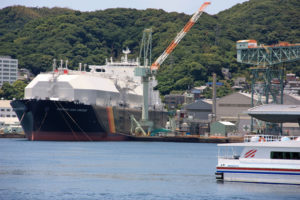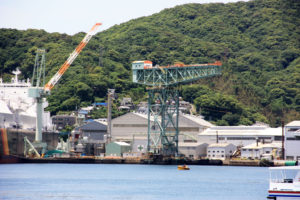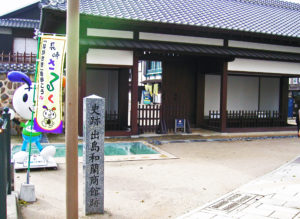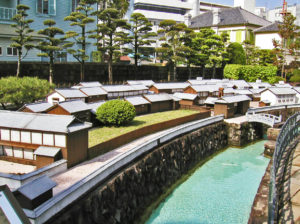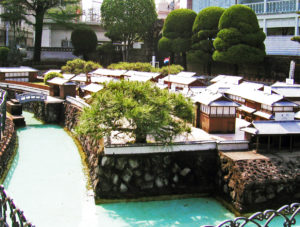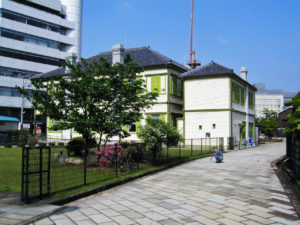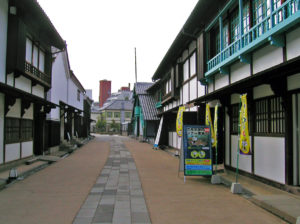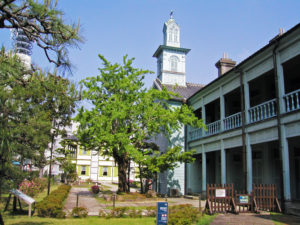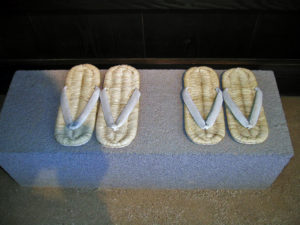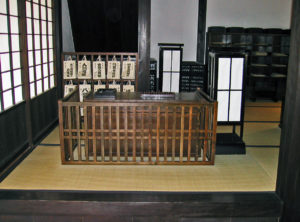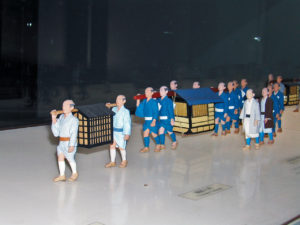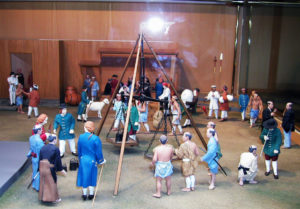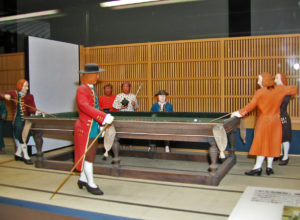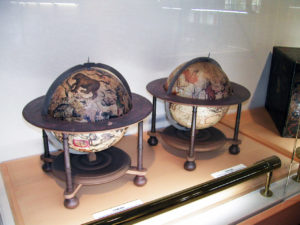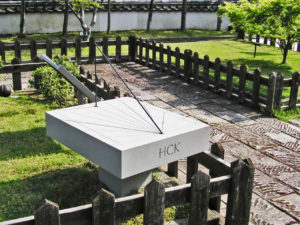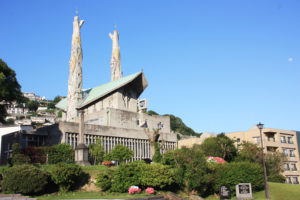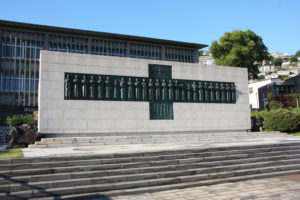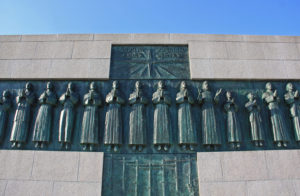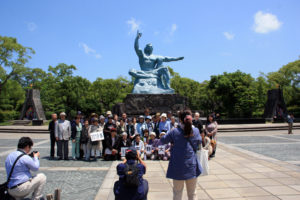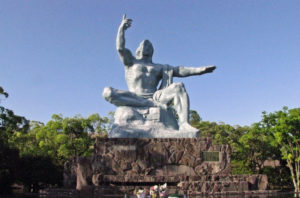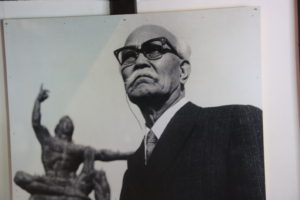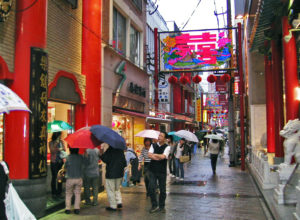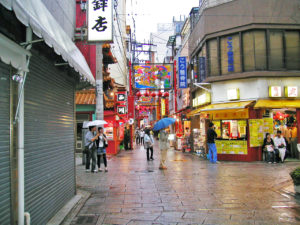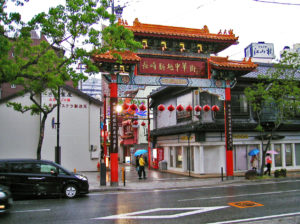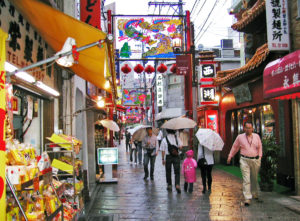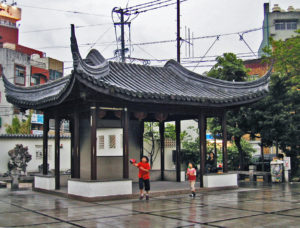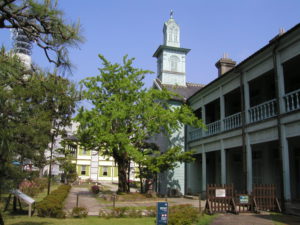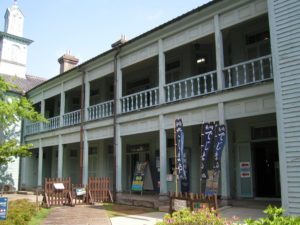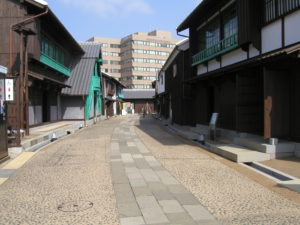Former Shitsu Aid Center
This Tourist information is created by Japan KYUSHU Tourist for enjoyment
of your travel. We are the Travel Agent in Fukuoka specializing in Kyushu.
When you have an idea or a plan for traveling in Kyushu, Japan, please contact
us by sending an Enquiry.
I want to save people in the Sotome from poor life. Former Shitsu Aid Centeris indispensable
in talking about the history and culture of the region. In 1879, Father Marc Marie de Rotz,
a French missionary who has been assigned to the Sotome, has a variety of farming,
fishing, medical, and educational programs to save local residents from plight. I did an activity.
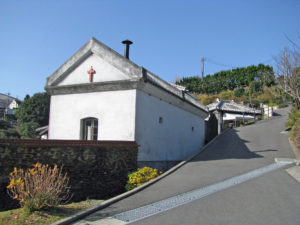 |
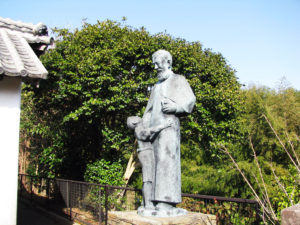 |
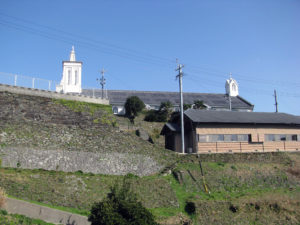 |
Former Shitsu Aid Center is a delivery facility for women, in 1883. It was founded with the
cooperation of members of the Church of St. Joseph, which was founded and trained by the
Father himself. In 2003 in 12, some of these facilities were designated as nationally
designated important cultural properties as the remains of valuable birth and welfare facilities
in the early Meiji period.
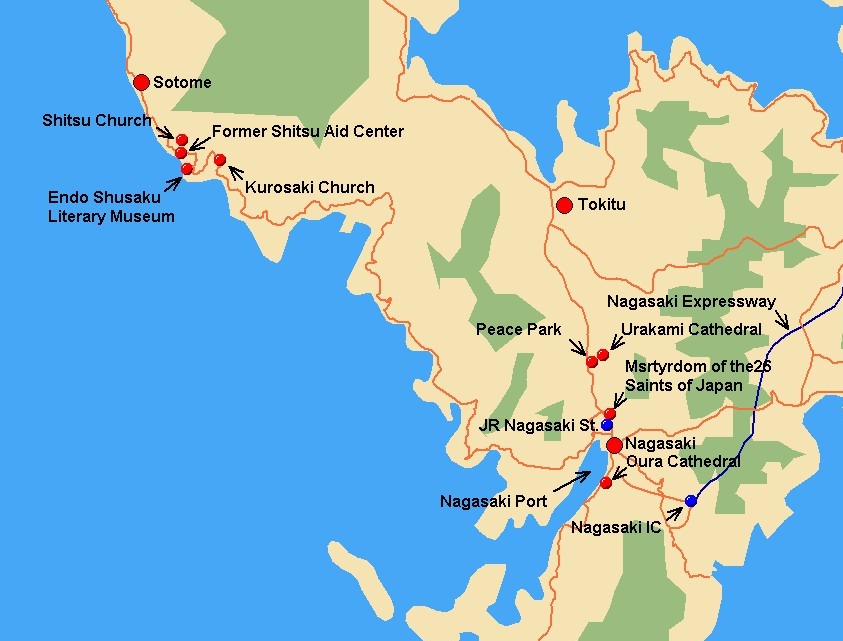
Dejima Wharf
This Tourist information is created by Japan KYUSHU Tourist for enjoyment
of your travel. We are the Travel Agent in Fukuoka specializing in Kyushu.
When you have an idea or a plan for traveling in Kyushu, Japan, please contact
us by sending an Enquiry.
Elegant international & domestic tourist harbour. Made up of around 20 unique shops and
restaurants lined up at the water front, offering various choices such Japanese, Western,
and Italian cuisine, to beauty salons, outdoor shops and more.
|
|
|
|
It is quite the popular spot for people who want to relax while viewing the sea beyond as they
dine outdoors.
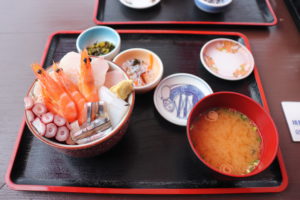 |
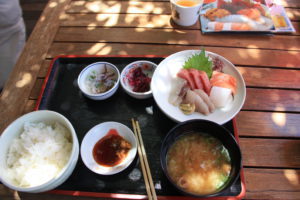 |
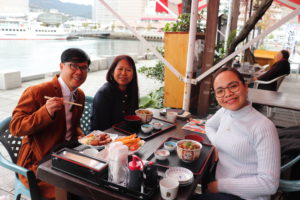 |
Nagasaki Harbour
Located in the center of East Asia and is surrounded by the beautiful green mountains.
The city has flourished due to foreign trade through the port. Now the port is home to Mitsubishi
Heavy Industries, which has one of Japan’s largest shipbuilding facilities.
|
|
|
|
Not only ships but also many industrial goods such as wind and thermal generators are
manufactured and exported from Nagasaki. Recently, the port was changed by the appearance of
a beautiful park and Venus Bridge or the long cable-stay bridge. The port facilities will be further
improved as a major gateway with a long tradition of international exchange and together with a
geographically advantageous location.
|
|
|
|
General information
| Address | 1-1 Dejima-machi, Nagasaki-city |
| Access |
a short walk from Dejima Tram Station a short walk from Tsuki-machi Tram Station 15 minutes walk from JR Nagasaki Station |
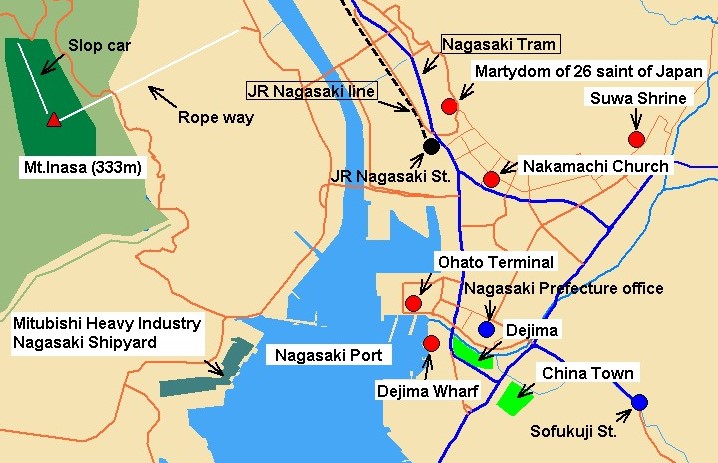
Endo Shusaku Literary Museum
This Tourist information is created by Japan KYUSHU Tourist for enjoyment
of your travel. We are the Travel Agent in Fukuoka specializing in Kyushu.
When you have an idea or a plan for traveling in Kyushu, Japan, please contact
us by sending an Enquiry.
The peaceful Sotome, the setting of Endo Shusaku’s novel Silence. Sotome area of Nagasaki
city has an abundance of natural beauty in its sea, mountains and rivers. It also is blessed with
a unique history and culture of Christianity. In particular, the area in which the Endo Shusaku
Literary Museum stands is known as the site of a Christian village, one of Endo’s most notable
work, Silence.
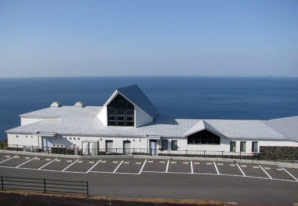 |
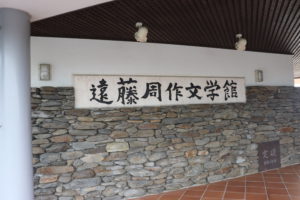 |
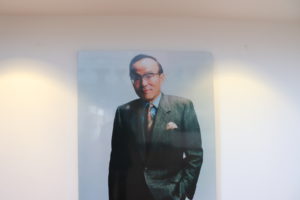 |
From the literary museum, there is a magnificent view. In a sweep of eye one can see sun as
it majestically sets over the sea of Goto, along with the Silence Literary Monument in Shitsu
Bunka Mura. Endo Shusaku and the Sotome area are linked through Silence ; this bond has
been built up starting from when Endo was writing the novel, and continues into the present day
with the construction of literary museum.
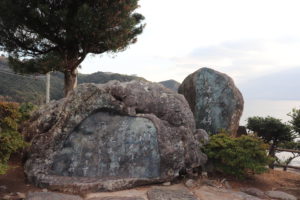 |
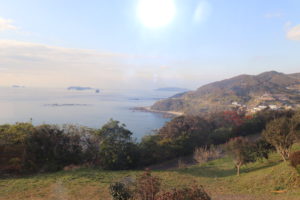 |
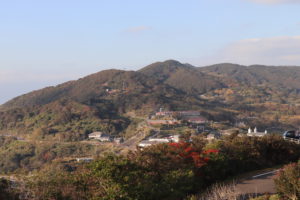 |
Following Endo Shusaku’s death, this Literary Museum was established thanks to kindness of
his family, and was filled with Endo’s persona belongings, mementoes, manuscripts, and his
extensive collection of books. The Museum exhibits trace the footsteps of Endo Shusaku as
one of Japan’s greatest writers of literature. In addition, it has facilities for collecting, preserving,
and exhibiting materials related to Endo’s public perusal and research, and operating as an
information center.
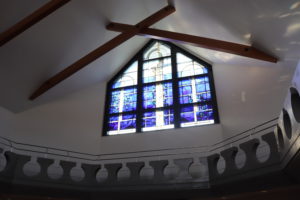 |
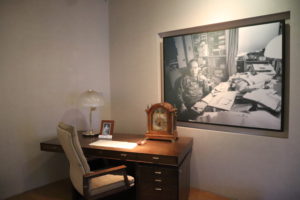 |
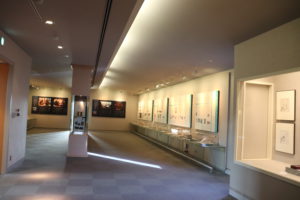 |
Note : Silence
Silence is a 1966 novel of theological fiction by author Endo Shusaku, published in English by
Peter Owen Publishers. It is the story of a Jesuit missionary sent to 17th century Japan, who
endures persecution in the time of Hidden Christians that followed the defeat of the Shimabara
Rebellion. The recipient of the 1966 Tanizaki Prize, it has been called “Endo’s supreme
achievement and “one of the twentieth century’s finest novels Written partly in the form of a letter
by its central character, the theme of a silent God who accompanies a believer in adversity was
greatly influenced by the Catholic Endō’s experience of religious discrimination in Japan, racism
in France, and a debilitating bout with tuberculosis.

Dejima
This Tourist information is created by Japan KYUSHU Tourist for enjoyment
of your travel. We are the Travel Agent in Fukuoka specializing in Kyushu.
When you have an idea or a plan for traveling in Kyushu, Japan, please contact
us by sending an Enquiry.
Dejima was the fan-shaped artificial island in the bay of Nagasaki where was used
as a trading port during Japan’s National isolation of Edo period.
In 1636, the artificial island, Dejima was constructed to accommodate Portuguese
who lived in Nagasaki and to prohibit Christian missionary work.
In 1638, trade with Portugal was prohibited and Dejima becaome an uninhabited island.
In 1641, the Dutch trading post in Hirado was moved to Dejima, and then the history of
trade with the Dutch began at Dejima as only the gateway to European in Japan
Many European technologies and cultures were introduced here through Dutch until 1853.
|
Entrance of Dejima |
Fan-shaped artificial island, was built in 1636 |
Dejima used from 1641 until 1853 |
A project to restore Dejima is underway. In 2000, five buildings including the Deputy Factor’s
Quarters were completed and opened to the public.
|
Dejima International Club
|
Building of residence, cooking room, warehouse |
The old Dejima seminary, a Christian theological school |
In the spring of 2006, the finishing touches were put on the Chief Factor’s Residence, the
Japanese Officials’ Office, the Head Clerk’s Quarters, the No. 3 Warehouse and the Sea Gate.
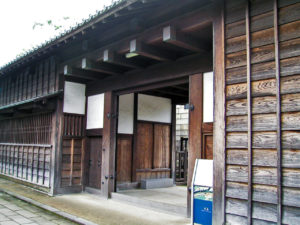 |
|
|
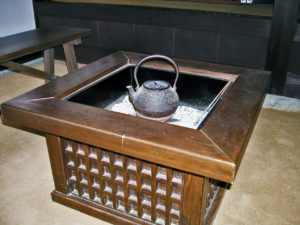 |
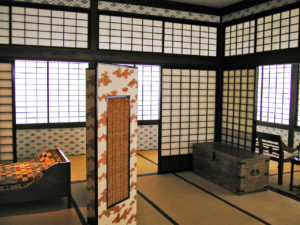 |
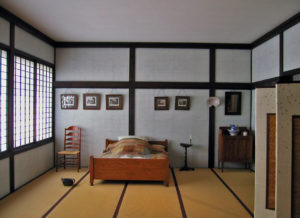 |
|
|
|
|
|
|
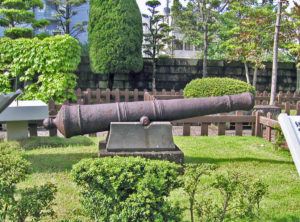 |
|
General information
| Address | 6-1 Dejima-machi, Nagasaki-city |
| Access |
a short walk from Dejima Tram station |
| Open hours | 8:00 to 21:00 |
| Admission fee | JPY 510 |
| Days closed | No closing days |

Martyrdom of the 26 Saints of Japan
This Tourist information is created by Japan KYUSHU Tourist for enjoyment
of your travel. We are the Travel Agent in Fukuoka specializing in Kyushu.
When you have an idea or a plan for traveling in Kyushu, Japan, please contact
us by sending an Enquiry.
Nishizaka Hill in Nagasaki is the place of Martyrdom of 26 Japanese Saints. The 26 Martyrs of
Japan were a group of Catholics who were executed by crucifixion on February 5, 1597.
The Twenty-six Christians led by Paulo Miki, including six foreign missionaries and three young boys,
were arrested in Kyoto and Osaka on the order of Toyotomi Hideyoshi, the National ruler, for preaching
Christianity.
They were marched 800 km through the snow to Nagasaki and crucified in front of large crowd on
Nishizaka hill on Feb. 5, 1597.
Paul Miki said from the Cross
All of you who are here, please listen to me.
I am a Japanese by birth, and a brother of the Society of Jesus. I have committed no crime, and the
only reason why I am put to death is that I have been teaching the doctrine of our Lord Jesus Christ.
I am very happy to die for such cause, and see my death as great blessing from the Lord.
At this critical time, when you can rest assured that I will not try to deceive you, I want to stress
and make it unmistakably clear that man can find no way to salvation other than the Christian
way. The Christian law commands that we forgive our enemies and who have wronged us.
I must therefore say here that I forgive Taikosama (Hideyoshi).
Then they all ascended to heaven with the happy of giving the life to Christ.
|
Nishizaka hill, the site of Martyrdom in 1597 |
The martyrs said that ” All people, bless God ! ” |
The 26 Japanese martyrs have been canonized in 1862 |
Pope Pius XII designated the Nishizaka of Martyrdom of 26 Japanese
Saints as an official Pilgrimage site for Catholics in 1950.
The place of their martyrdom was designated as a Historical Place by Nagasaki-prefecture
in 1956.
The museum behind the monument is devoted to the memory of the martyrs and to Christianity in
Japan in general. Its interior is reminiscent of a church with stained-glass windows, making for
atmospheric viewing of the exhibits. On display are artifacts related to Christianity in Japan,
including old documents, statues and jewelry.
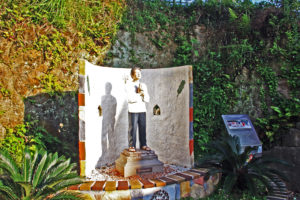 |
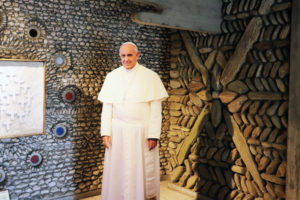 |
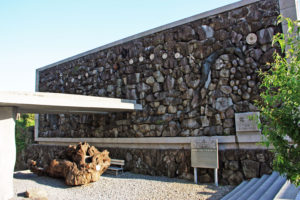 |
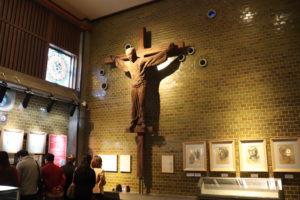 |
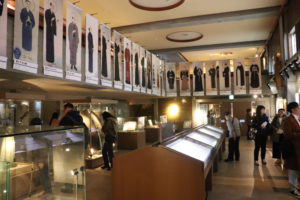 |
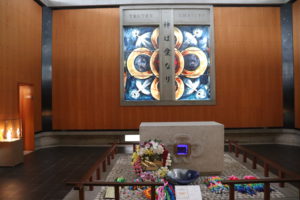 |
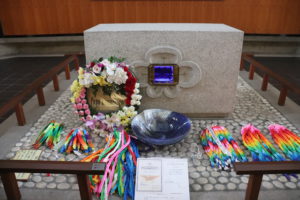 |
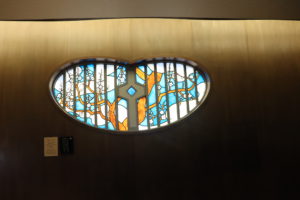 |
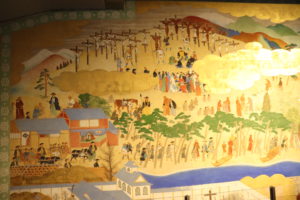 |
General information
| Address | 7-8 Nishizaka-cho, Nagasaki-city |
| Access | 5 minutes walk from JR Nagasaki Station |

Peace Statue
This Tourist information is created by Japan KYUSHU Tourist for enjoyment
of your travel. We are a Travel Agent in Fukuoka specializing in Kyushu.
When you have an idea or a plan for traveling in Kyushu, Japan, please contact
us by sending an Enquiry.
World Peace from Nagasaki. The Peace Statue was completed in 1955, ten years after the
atomic bombing. The 9.7 meter high statue sitting on a 4 meter tall pedestal, made by renown
sculptor Kitamura Seibo who born in Minami-Shimabara-city, Nagasaki-prefecture in 1884.
The bronze Peace Statue has one left arm extending horizontally and other right arm pointing
to the sky. The left arm stretching to the horizon symbolizes world peace, and the other right
pointing skyward indicates the threat of atomic destruction (the harm of nuclear power).
The closed eyes show the prayer for the peaceful repose of the victims of the Atomic Bomb.
|
Visiting from all over Japan and the World |
Wishing for eternal world peace from Nagasaki |
Kitamura Seibo, the Statue was completed at the age of 71 |
Peace Memorial Ceremony is held in front of the statue on August 9 every year and
the Mayor of Nagasaki makes the “Nagasaki peace declaration” for the whole world.
Commitment to World Peace from all over the World
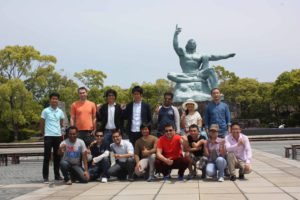 |
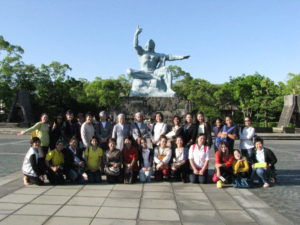 |
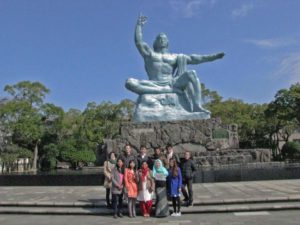 |
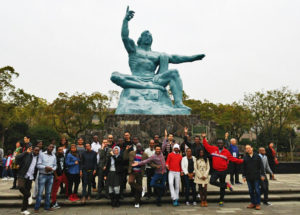 |
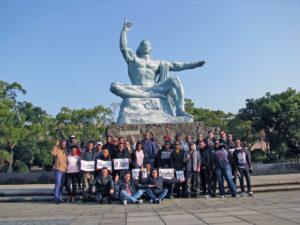 |
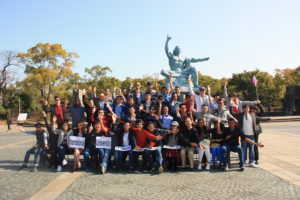 |
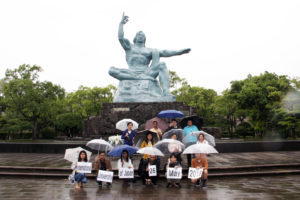 |
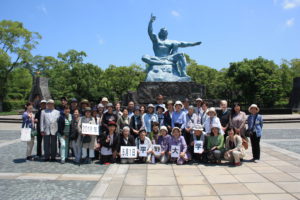 |
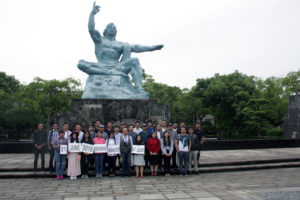 |
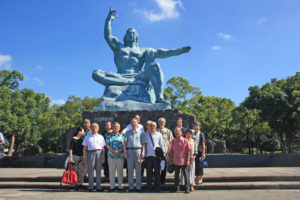 |
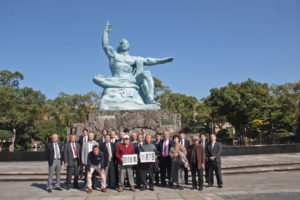 |
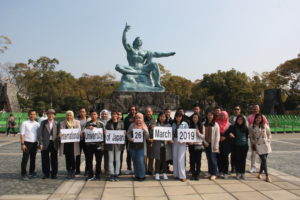 |
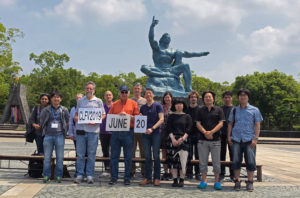 |
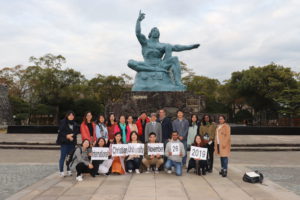 |
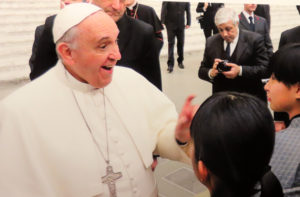 |
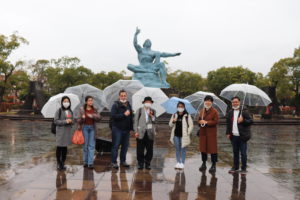 |
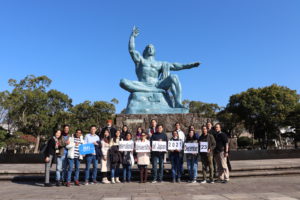 |
General information
| Address | Heiwakoen, Matsuyama-machi, Nagasaki-city |
| Access | 5 minutes walk from Heiwa-koen-shita Tram Station |
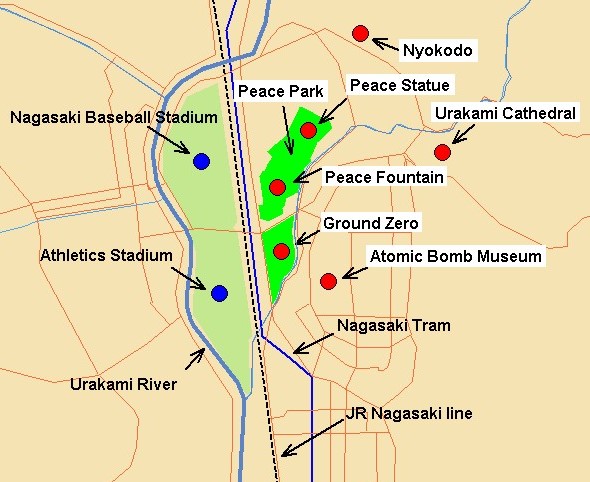
China town
This Tourist information is created by Japan KYUSHU Tourist for enjoyment
of your travel. We are a Travel Agent in Fukuoka specializing in Kyushu.
When you have an idea or a plan for traveling in Kyushu, Japan, please contact
us by sending an Enquiry.
China town at shinchi is one of the big three china town in Japan. There are about
50 Chinese restaurants and many Chinese sundries shops in there.
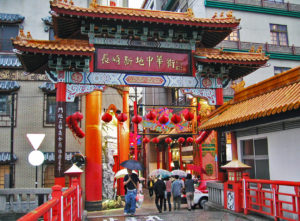 |
|
|
|
|
|
|
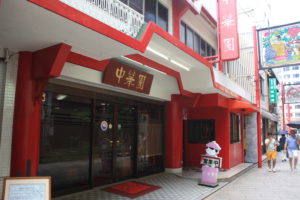 |
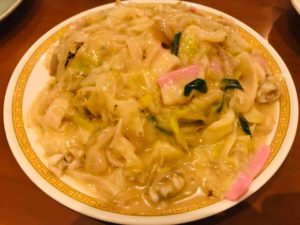 |
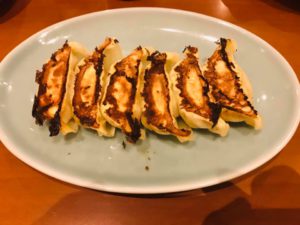 |
An annual festival in Nagasaki held on Chinese new year. The festival has been started to
celebrate a new year by Chinese who lived in Nagasaki, and it became the Nagasaki’s festival
since 1994. More than 10 thousand lanterns are decorated at China town during the festival.
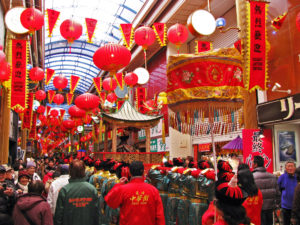 |
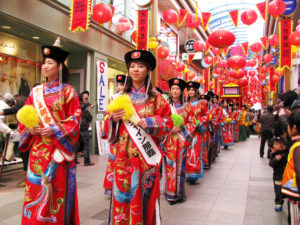 |
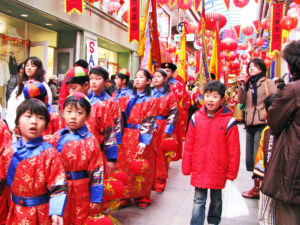 |
General information
Access : a short walk from Shinchi-chukagai Tram Station

Mount Inasa
This Tourist information is created by Japan KYUSHU Tourist for enjoyment
of your travel. We are the Travel Agent in Fukuoka specializing in Kyushu.
When you have an idea or a plan for traveling in Kyushu, Japan, please contact
us by sending an Enquiry.
Mount Inasa is one of the best view spot in Nagasaki. A 333 meter high mountain in close
distance to JR Nagasaki Station. The summit can be reached by ropeway or car and offers
great views over the city. And also, the magnificent night views from Mount Inasa is chosen
the three Major Night View in Japan along with Kitakyushu-city and Sapporo,
and the three Major Night View in the World along with Hong Kong and Monaco.
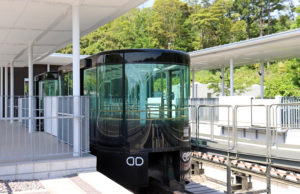 |
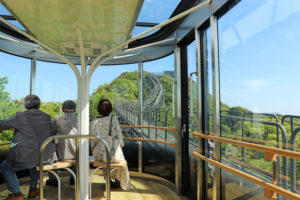 |
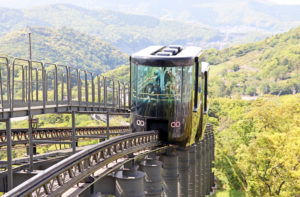 |
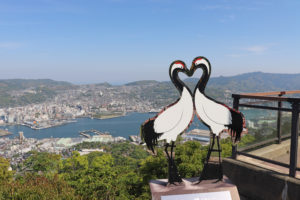 |
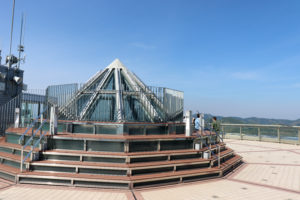 |
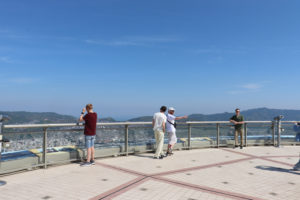 |
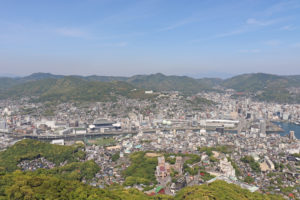 |
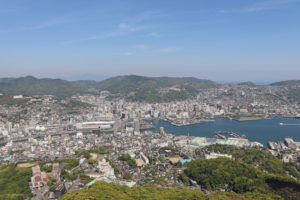 |
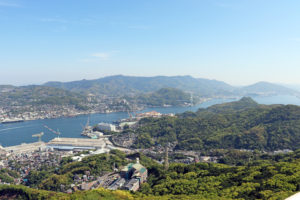 |
The three Major Night View in the World
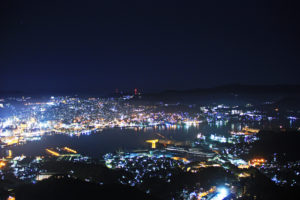 |
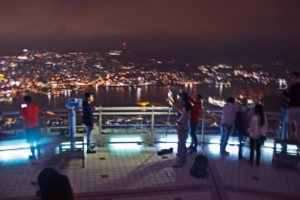 |
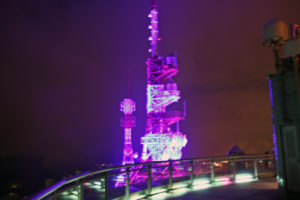 |
General information
Access
・20 minutes by car from JR Nagasaki station
・By Nagasaki bus and ropeway
10 minutes from JR Nagasaki station to Fuchi-jinjya Ropeway station
5 minutes from Fuchi-jinjya to sancho Ropeway station
・Inasayama Night View bus tour is available from Hotels in Nagasaki-city
by Nagasaki Yuran Bus
Nagasaki

Ground Zero
This Tourist information is created by Japan KYUSHU Tourist for enjoyment
of your travel. We are the Travel Agent in Fukuoka specializing in Kyushu.
When you have an idea or a plan for traveling in Kyushu, Japan, please contact
us by sending an Enquiry.
Disastrous War must not be repeated. The plutonium atomic bomb exploded about 500m over the
central monument at 11:02 a.m. on August 9, 1945. The most part of Nagasaki was destroyed, and
a tremendous number of lives were lost. And about 70,000 of Nagasaki’s 240,000 residents died
instantly, and up to 60,000 were injured.
 |
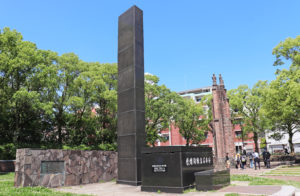 |
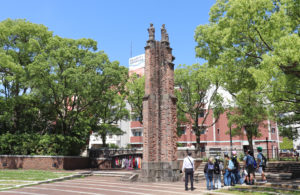 |
The radius of total destruction was about 1.6km, followed by fires across the northern portion of the
city to 3.2km south of the bomb.
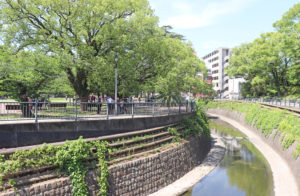 |
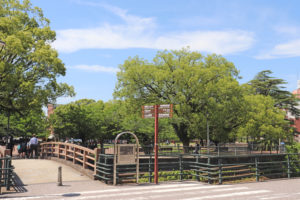 |
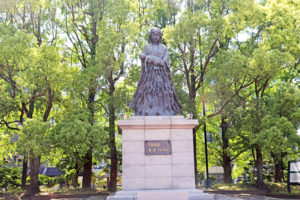 |
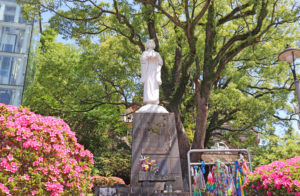 |
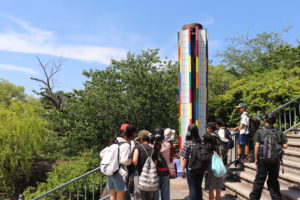 |
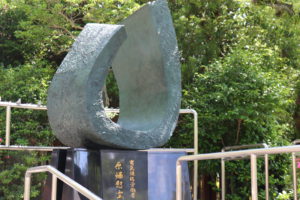 |
General information
| Address | Heiwakoen, Matsuyama-machi, Nagasaki-city |
| Access | 3 minuts walk from Heiwa-koen-shita Tram Station |

St. Andrew’s Seminary at Dejima, in Nagasaki
This Tourist information is created by Japan KYUSHU Tourist for enjoyment
of your travel. We are the Travel Agent in Fukuoka specializing in Kyushu.
When you have an idea or a plan for traveling in Kyushu, Japan, please contact
us by sending an Enquiry.
After the ban on Christianity lifted in 1873, Burnside who was the British Church Missionary created
a cram school at his home to teach the English Bible. In 1877, the school was moved to the Dejima
English-Japanese School building at Dejima, and St. Andrew’s Seminary was opened.
It was then used as the Seminary until 1886.
|
|
|
|
General information on Dejima
| Address | 6-1 Dejima-machi, Nagasaki-city |
| Access |
a short walk from Dejima Tram station |
| Open hours | 8:00 to 21:00 |
| Admission fee | JPY 510 |
| Days closed | No closing days |


